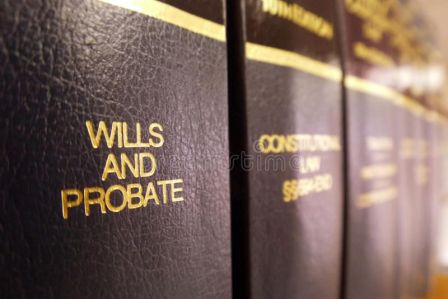“Serving The Community And Surrounding Areas For Over 55 Years!”
Whether probate is necessary depends on what property the decedent owned and how it was held, and on the law of state in which the decedent died and the laws of any states where the decedent held property.
In general, the probate process clarifies issues in a will and resolves any challenges to the distribution of funds of an estate. The type of probate needed depends on the size of an estate. Generally, it is necessary to go through probate or, in the case of smaller estates a less formal procedure under the general supervision of the probate court, before the deceased’s property can be legally distributed. Without probate of a will, complicated legal issues can arise.
Probate Is Necessary Even with a Will
The first major issue to be resolved through the probate process is the clarification of title for the property of an estate. Even if there was a will, all of the property owned by the deceased at the time of death is part of the estate and is subject to probate including bank accounts, CD accounts, pension accounts, and the deceased’s personal property, like jewelry, furniture, and artwork. Probate not only distributes property, but also results in a legal transfer of title to that property. For example, a family member, such as an aunt, passes away and leaves her home to a nephew, the probate court can order the issuance of a title put in the nephew’s name, who can then legally manage the property. However, until the will is probated, that title is potentially clouded as it has not been legally transferred.
Common Reasons Probate Is Necessary
If there was no will, probate is necessary to determine the beneficiaries and to distribute the decedent’s assets and title to property.
A valid will exists. As discussed above, in order for the assets of an estate (excluding some smaller estates) to be properly distributed to the named beneficiaries, a valid will must go through probate.
Probate is necessary when there are problems with an existing will. Some of these issues may include: the submitted will is not the final version to be considered; there are mistakes in the will or it was fraudulently executed; the will was drafted at a time when the decedent was not of sound mind; or any other challenges to the integrity of the will. In some cases, an institution or bank may waive the requirement that an estate be probated before money in an account is released if the beneficiary is the principal heir-at-law (person legally entitled to the real property of the deceased), all other possible heirs-at-law will have signed waivers and authorizations to pay the money to the beneficiary, and have agreed to repay the bank should any claims be made. But that’s the exception rather than the rule for nationally-operating institutions.
Probate is required when an estate’s assets are solely in the deceased’s name. In most cases, if the deceased owned property that had no other names attached, an estate must go through probate in order to transfer the property into the name(s) of any beneficiaries.
When there are no beneficiaries named or they have predeceased the decedent, probate is necessary. This situation applies to any retirement or savings accounts such as IRA or 401(k) accounts or life insurance policies that would pay out to beneficiaries; if beneficiaries are not named or are all predeceased, the accounts will need to be probated in order to transfer funds or titles into beneficiaries’ names.
Probate is required when a decedent owned property in joint tenancy (also known as a Tenant-in-Common). In the case that a decedent owned property with others, probate must be used to remove the decedent’s name and transfer his or her share of the property into the names of the appropriate beneficiaries.
The probate process clarifies a will and protects an estate from challenges to the specified beneficiaries of inheritance. Although using probate for a will is an effective, and sometimes necessary process, some matters of a will can be handled without involving a probate court. The strategies available depend on the nature and shared ownership of the property in the estate.

Contact our office for a free consultation.
Phone Number: (251) 275-3155
Our Location: 131 Cobb Street Grove Hill, AL 36451
No representation is made that the quality of the legal services to be performed is greater than the quality of legal services performed by other lawyers.